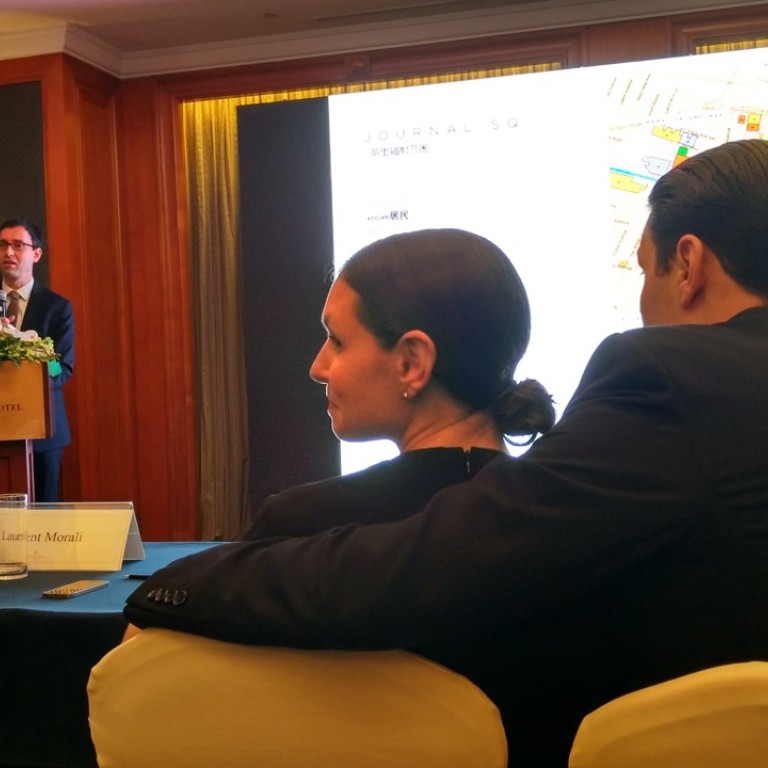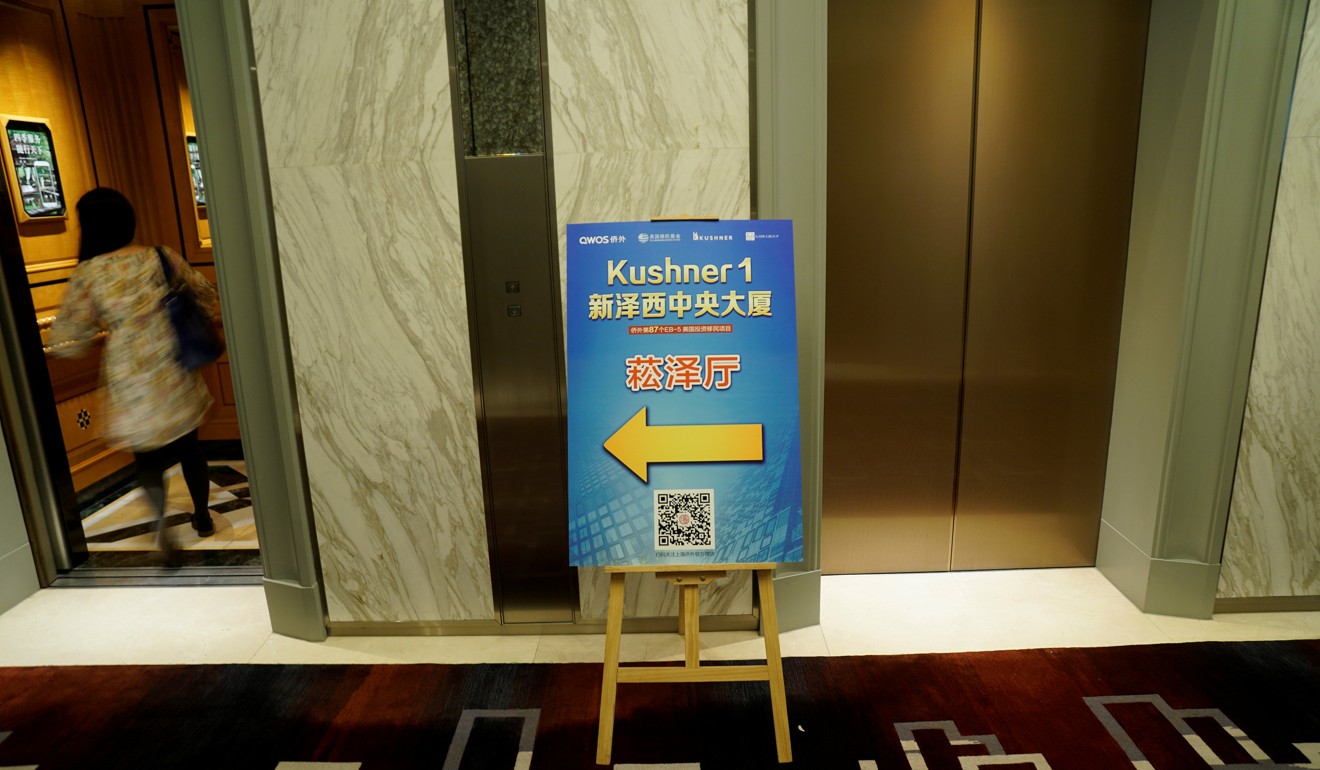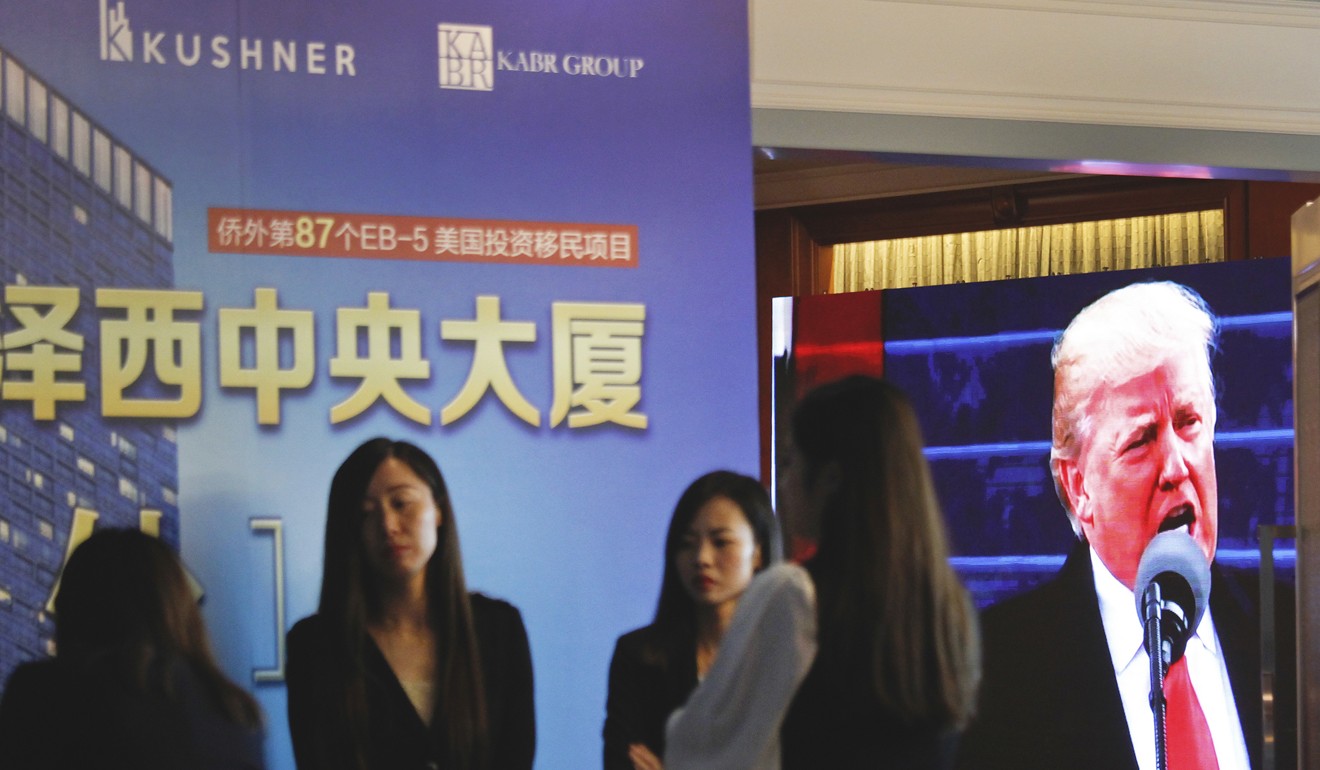
Analysis | Kushner New Jersey project, touted by sister in China, is in trouble at home
When Jared Kushner’s sister took the stage in two Chinese ballrooms over the weekend to urge investors to fund a New Jersey development through a controversial visa program, she mentioned her brother’s role in the White House and displayed a photo of US President Donald Trump. It was a not-so-subtle signal that hers is a family company with connections.
What she didn’t mention was that the project has suffered a slew of problems: the exit of its anchor tenant, the loss of millions in tax breaks and a curdling political relationship with the mayor of its host city.

Kushner Companies first pitched a new tower at Journal Square in Jersey City as a revolutionary endeavour: two soaring towers filled with living and working spaces by the successful startup WeWork. The US$400 million project beckoned a new era when a formerly distressed area, across the river from Manhattan, would compete as a burgeoning hub for tech talent. And US$93 million in public subsidies showed the excitement of state and local officials.
That was 2015. By the time Jared Kushner’s sister, Nicole Meyer, made her pitches in Beijing and Shanghai -- raising conflict-of-interest concerns -- WeWork was out, forfeiting more than half the project’s subsidies. And Kushner’s role as White House senior adviser had damaged the tenuous balance his family had struck in liberal-leaning Jersey City, which has seen immigration-related protests.

Though Jersey City Mayor Steven Fulop had written a letter to the state in support of the tower and was considering issuing US$10 million in city bonds to help it along, this past weekend he stated publicly what he earlier told the family: that he opposes the Kushners’ new petition for US$30.4 million in city bonds and a 30-year tax abatement.
“The administration made clear to the applicant that the city is not supportive of their request,” Fulop wrote on Facebook. “I have made my feelings clear here on this project and what I feel works best for Jersey City. This tax abatement application doesn’t work for us.”
Oddly, the version Meyer promoted in China is bigger, grander and more than twice as expensive as plans pitched to the New Jersey Economic Development Authority in November 2015. It will cost nearly US$1 billion, including US$150 million from Chinese investors, US$301 million in owner equity and US$525 million in debt, according to a pitchbook for an upcoming meeting in Guangzhou. It will have more than double the 744 apartments originally proposed to New Jersey.
The US$301 million in owner equity is a sharp increase over US$71 million that Kushner Companies proposed to New Jersey for the tech-hub concept.
The planned expansion is surprising, given soured relations at home. The Kushner family and its partner in Jersey City, the KABR Group, has previously donated US$100,000 to Progressive New Jersey Inc, a nonprofit that Mayor Fulop’s allies helped set up in 2014 to promote worker safety and other issues. Last year, when the mayor was publicly mulling entering the New Jersey governor’s race, Progressive New Jersey made a US$400,000 contribution to a pro-Fulop political-action committee. After a public outcry, that donation was returned. Fulop is up for re-election this year.
Kushner and KABR were each slated to own one fourth of the WeWork tower, according to the request to the development authority. WeWork would own the remainder. But US$59 million in tax breaks were tied to WeWork’s occupying and operating the building as a technology incubator - not merely owning it. A spokesman for WeWork declined to comment.
The China pitch illustrates an emerging pattern for the family of the president’s son-in-law and senior adviser. The Kushners increasingly are turning to international investors, often in China, to get tough deals done. It previously lobbied Anbang Insurance Group, a Chinese financial behemoth, for a redevelopment of its troubled tower at 666 Fifth Avenue in Manhattan. Those negotiations fell apart. To purchase apartment buildings in the city’s downtown, it partnered with one of Israel’s wealthiest families.
The visa program the company is using to partially finance the Jersey City project is known as EB-5 and works like this: In exchange for investing at least US$500,000 in a project promising to create jobs, foreigners receive a two-year visa with a good chance of obtaining permanent residency for them and their families. One goal of the program is to spur development in depressed communities.
The Government Accountability Office, the investigative arm of Congress, has found that many such projects are in wealthy areas and that the program has insufficient safeguards against fraud and abuse, with some applications containing counterfeit documents.
The Kushners used EB-5 financing in building Trump Bay Street in Jersey City. Ethics experts say this reliance poses deep conflicts of interest for Jared Kushner even though he has divested his ownership in many projects to close relatives. Trump, who ran on a campaign to curb immigration, extended the controversial program when he signed the Omnibus budget bill one day before the Beijing presentation.

